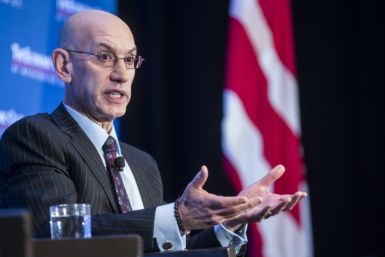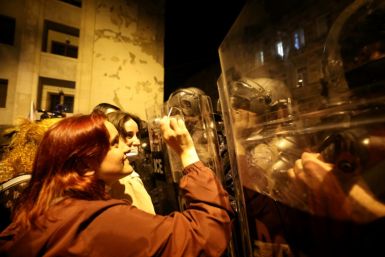The Housing Recovery Producing A Nation of Serfs
Stocks, bonds, gold - all bounced around last week, with no clear direction.
And, as we mentioned, Americans continue to turn into 'neo-serfs'.
'Wall Street is running a new profit game,' writes Shabnam Bashiri, 'by buying foreclosed houses and renting them back to their former owners.'
Yes...nice business. Even better than it looks. It's why the rich get richer...and the 1% are way ahead of the other 99%:
'Every day, it seems a new report comes out praising the ongoing housing recovery. In Georgia, home prices are up 5% over last year, a year in which we also had one of the highest foreclosure rates in the country. Seems a little odd, doesn't it? Don't foreclosures usually drive down the market?'That's because the housing "recovery", as they're calling it, is fuelled almost entirely by Wall Street private equity firms, hedge funds and the Fed's unwavering support. After creating a massive bubble in home prices that eventually burst and caused our economy to go into a tailspin, these guys have decided to come back for more, and figured out a way to profit off their destruction - by turning foreclosed homes into rentals and securitizing the rental income. 'The Blackstone group, the biggest player in the new REO to rental market, has spent $2.5bn in the last year purchasing 16,000 homes, a number that amounts to over $100m per week. Property records show that many of the homes Blackstone has acquired in Fulton County over the last few months were purchased on the courthouse steps at the monthly foreclosure auction, or through short sales-when a lender agrees to accept less than the amount owed on a loan. The vast majority of these homes are not empty, but occupied by homeowners who fell behind during the great recession. 'Gone are the days of calling up your landlord to let them know rent will be there on the 7th instead of the 1st this month. As more and more Americans live paycheck to paycheck, and wages continue to decline or remain stagnant, paying rent a few days late could lead to a negative credit score, impacting their ability to secure resources and move up the ladder of the middle class.' |
'Paycheck to paycheck'. That's the way serfs live. In someone else's house. On someone else's money. Often driving in someone else's automobile. And sometimes even sitting on someone else's furniture.
Got a health problem? Oh yes...check into someone else's health system.
Want an evening out at a restaurant? Put it on a credit card; let someone else pay for it.
Serfs don't necessarily live poorly; they live badly. Because they're not in control of the resources they need to live well. They are dependent, not independent.
We saw an ad for a new 'smart' car. 'Just $199 a month,' said the ad. People don't own cars anymore. They just lease them...or not even. A lot of young people use Zipcars... a rental service where you rent the car through your iPhone...You never go to a rental agency or see a rental agent. You get a code via your iPhone. You use the code to unlock the car. Easy peasy.
Some young people we know don't own anything. They say it's 'liberating'. But that is something else. Not owning anything can be a smart financial strategy. But not owning a house because it was foreclosed...and not owning a car because you can't afford one...does not sound very smart.
You want a smart financial strategy?
Look at Blackstone. One of the houses they bought - probably much like the others - was purchased for $90,000. It has a mortgage on it of $200,000. The former owners are still living in it. Instead of a mortgage, they're now paying rent. Now they're serfs.
Do the maths. If they bought the house in 2005, they probably had a 6% mortgage. 6% of $200,000 is $12,000. Add in another, say, $3,000, amortisation and charges and they probably had a monthly payment of about $1,250.
Now, the suits take over. Thanks to the conniving of other suits at the Fed, they are able to borrow for, perhaps, 3.5%. Let's add another $10,000 to their purchase price (closing, taxes, maintenance...) to make the maths easier. That gives them a monthly capital cost of less than $300 per month. And, because these guys have big hearts as well as big wallets, they reduce the renter's monthly payment to only $1,000.
Everybody comes out ahead. The former homeowners don't have to move. They save money each month. And Blackstone, which may have only about $10,000 of its own money in the deal, earns...are you ready for this...as much as $6,000 net per year...or about a 60% rate of return on its cash.
But wait. It gets better. Because Blackstone is not counting on a real bull market in housing. Nope, the geniuses at Blackstone are making a big bet on interest rates. At no extra cost, they have gotten a free option. They're short the bond market in a major way. When bonds finally go down (perhaps they've already begun)... Blackstone is going to get another big jackpot.
And, this payoff is practically guaranteed. They've got their money-printing friends at the Fed to make sure it happens.
Regards,
Bill Bonner
for The Daily Reckoning Australia






